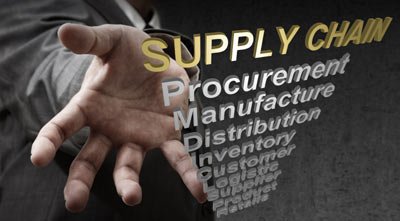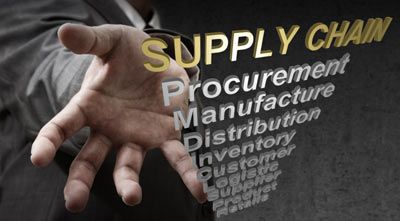THE GROWING TREND OF COMMERCIAL PRESSURE TO TAKE ENHANCED RESPONSIBILITY FOR SUPPLY CHAIN
Published by Gbaf News
Posted on March 14, 2014
9 min readLast updated: January 22, 2026

Published by Gbaf News
Posted on March 14, 2014
9 min readLast updated: January 22, 2026

Apple move highlights growing trend of commercial pressure to take enhanced responsibility for supply chain
On 13 February 2014, technology giant Apple published its Supplier Responsibility 2014 Progress Report. The report made public details of its progress in raising standards throughout its global supply chain, educating staff, improving working conditions and imposing higher standards of conduct on the businesses it relies on for the manufacture of products such as the iPad, iPhone and Mac.

Enhanced Responsiblity For Supply Chain
Once upon a time, corporates managed their supply chain for value and efficient delivery. Management is no longer so simple, as the challenges associated with supply chain management now include factors as varied as human rights, economic sanctions, export controls, corruption and local content laws. Increasingly, this deliberate focus by corporates on ethics means that national regulators and enforcement agencies can increasingly count on the corporate community itself to help in the bid to tackle complex crimes such as fraud and corruption. While this may represent the leading edge of corporate compliance, market-leading corporations are promoting sustainable, ethical practice by integrating it into supply chain evaluation and selection processes and by pushing obligations, certification and transparency on their supply chains.
Of particular interest is Apple’s decision to publish a list of smelters and refineries used by the company, indicating which of them may be using conflict minerals.
Conflict minerals
Conflict minerals are metals, typically tungsten, tantalum, tin and gold, which are mined in conditions of armed conflict and human rights abuses, mostly in the eastern provinces of the Democratic Republic of Congo and adjacent areas of neighbouring countries.
Under s.1502 of the US Dodd-Frank Act, US companies are required to disclose in an annual report to the SEC the steps they are taking to ensure their products do not contain conflict minerals. They are required to publish this information on their websites. The move is designed to encourage companies both to scrutinise more thoroughly the source of their products and to improve the transparency of their business operations.
Apple’s report contains a list split into three sections according to smelters’ compliance with the Conflict-Free Smelter Program (CFSP). Companies are placed in one of the following lists:
This move ultimately casts doubt on the ethics of those with no known participation, at the same time as demonstrating the importance that Apple has placed on promoting transparency in its wider business operations.
The recent scandal surround the Kaloti Group refinery audit underlines the potential scale of the problem. According to a whistle-blower, a former partner of the accounting firm, EY, an audit of the Kaloti refinery in Dubai revealed that Kaloti paid around US$5billion in cash for gold purchases in 2012 alone (around 45% of its total 21012 business).
Expanding reach of legislation
The mechanism utilised by Dodd-Frank is not the only legislative measure designed to encourage corporates to more effectively police their supply chains. The ‘associated persons’ provisions contained in the UK Bribery Act 2010 also apply, as do other statutes such as the US Foreign Corrupt Practices Act. These legislative measures and substantial prosecution efforts have served to force companies to pay more attention to their supply chains and ensure that they police their own business partners.
Corporates regulating corporates
Major companies, from Coca-Cola to BP, now have stringent supplier codes of conduct that they require partners to sign up to in order to enter into business relationships. In Apple’s report, it states that “to do business with Apple, our suppliers must live up to the toughest standards in the industry, and we make sure there’s no confusion over our expectations”. The standards that Apple and other leading multinationals impose upon their business partners frequently meet international best practice standards rather than minimum levels set by legislation.
Major companies are willing to take drastic steps to protect their reputations. There are numerous examples of companies terminating supplier contracts due to ethical failures. In January 2013 a number of companies, including Tesco and Burger King, dropped Silvercrest after it became embroiled in the European horsemeat scandal, costing the firm tens of millions of pounds in lost orders. Tesco claimed in a statement that “the breach of trust [was] simply too great”.
Increasingly, attention is expanding from management and vetting of the existing supply chain to evaluation and selection of new vendors. In higher-risk activities such as logistics and customs clearance for example, FTSE-100 corporates are increasingly evaluating the ethical policies and procedures of potential new vendors. Vendors with clear, detailed, and demonstrably active ethical programs open up clear blue water between themselves and their competition. Ironically, this means that suppliers with historic problems, and the enforced remediation that follows, find themselves in a much stronger position than their competition.
What this means for the supply chain
Reputation management is vital to the health of the world’s largest brands, and even conduct of suppliers that does not contravene laws may be enough to trigger termination clauses in contracts if it is so emphatically at odds with the principal corporate’s ethical values.
It is clear that companies at all levels of the product supply chain must think beyond compliance with the national laws they are subject to. With 70 per cent of global trade estimated to involve the world’s 500 largest companies, multinationals are crucial to the financial health of smaller corporates throughout the world. They are also the primary targets of prosecutors, NGOs and consumers owing to their high profile.
In the face of such scrutiny, multinationals are increasingly widening their compliance programmes to require business partners to comply with best practices from appointment onwards, and to monitor performance. Corporations which recognise this and incorporate these features into their businesses and into their customer management will become market leaders.
All corporates should take an interest in their supply chains, undertake appropriate due diligence of new business partners and implement robust compliance programmes which meet international best practice norms. Should they fail to do so, they increasingly risk losing out on lucrative contracts and suffering reputational damage in the increasingly public sphere of business ethics.
About the Authors
Toby Duthie Partner, Forensic Risk Alliance
Toby Duthie is one of FRA’s co-founders and heads its London office. With experience in cases involving government enforcement in the UK and the US, his expertise lies in internal and regulatory investigations, data protection and complex financial modeling, with particular experience in global, multi-jurisdictional cases. Toby was instrumental in the development of FRA’s service in the anti-corruption and white-collar defense arena across Europe. He spent more than five years in the US, gaining extensive experience advising on damages amounts in a number of complex civil and criminal litigations and in connection with a number of high-profile FCPA enforcement actions (e.g. Panalpina, Bonny Island LNG and Oil for Food). He has also worked on matters involving the UK, Swiss and French regulators.
Derek Patterson Principal, Forensic Risk Alliance (FRA)
Derek Patterson is a forensic accountant with over 20 years’ experience in reviewing multi-dimensional financial facts, fraud and corruption, evaluating financial losses and in matters requiring internal investigation. He is currently involved in a number of complex financial reconstructions, multi-jurisdictional corruption investigations and pre-emptive reviews under a variety of anti-corruption regimes, including the US FCPA, the Swiss federal prosecutor, and the UK SFO.
Derek has recently undertaken compliance reviews and internal investigations for US and European clients in the extractive, infrastructure and medical devices sectors. For example, as part of a compliance enhancement initiative for a US-listed Oil Services company, Derek was responsible for the transactional sampling, testing and review of certain higher-risk West African operations. This included an especially detailed review of customs and logistics controls and transactions.
Jason Hungerford Senior Associate, Norton Rose Fulbright
Jason Hungerford is a disputes resolution lawyer based in London. Jason specialises in corporate compliance and investigations under a range of anti-bribery, economic sanctions and trade control laws and regulations.
Previously based in Washington, DC, Jason’s engagements have included the design and implementation of global compliance and training programs, regulatory due diligence for corporate transactions, internal investigations, and representation of corporate clients before governmental agencies. Jason advises on the FCPA, UK Bribery Act, economic sanctions administered by OFAC and the European Union, and US and EU dual-use and military trade controls, including ITAR. Jason has also advised on proceedings before the Committee on Foreign Investment in the United States.
About Forensic Risk Alliance
Forensic Risk Alliance (FRA) is a consulting firm with offices in the US, UK, France and Switzerland. It helps businesses to resolve complex and high-risk financial, legal and regulatory challenges. Its people provide independent, conflict-free advice and litigation support services, often in the local language as its team speaks virtually all of the world’s key business languages, including most European languages as well as Arabic, Russian, Mandarin and Cantonese Chinese, Malay and Bahasa Indonesia. FRA collects and analyzes data for use in legal disputes and investigations (often cross-border) in a number of areas, including litigation, fraud, bribery and corruption investigations. The company has extensive worldwide project experience in Latin America, Asia, Europe, Africa and the Middle East. FRA is one of only ten companies in the world approved to carry out validation audits for the EITI (Extractive Industries Transparency) Initiative which evaluate how well a country’s government conforms to the EITI’s standards of transparency in reporting revenue received from the extraction of natural resources. Members of the FRA team also provide expert witness testimony in court when required and have recently contributed two chapters to the Serious Fraud Office’s book ‘Serious Economic Crime – a boardroom guide to prevention and compliance’.
For more information, please visit www.forensicrisk.com or call +44 (0) 207 831 9110.
Explore more articles in the Finance category
